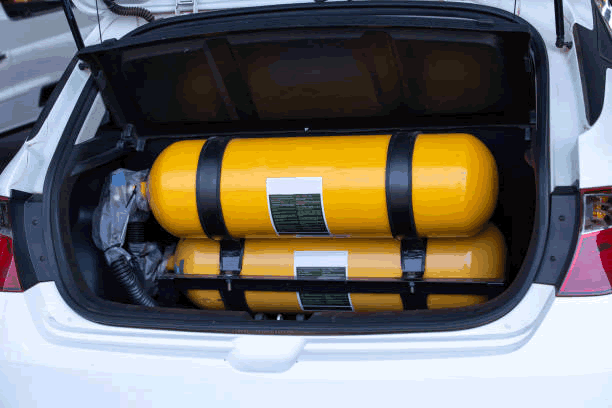In a significant move to promote cleaner and more sustainable energy sources, the Nigerian government has rolled out the Presidential Compressed Natural Gas (CNG) Initiative. This initiative is part of a broader effort to transition from traditional petroleum products to environmentally friendly alternatives, aligning with global trends towards reducing carbon emissions and enhancing energy security.
CNG Stations in Lagos and Abuja
As part of this initiative, several CNG refueling stations have been established in key urban areas, specifically in Lagos and Abuja. Here are some of the stations where you can purchase CNG:
Lagos:
- NIPCO Gas Limited: Operating four CNG stations across the city, NIPCO Gas Limited is a significant player in the distribution of compressed natural gas in Lagos.
- Banner Gas Oando Station, Marina: Strategically located for ease of access in the Marina area.
- Banner Gas Oando Station, Igboi-Fadeyi: Serving the Igboi-Fadeyi neighborhood with reliable CNG supply.
- Banner Gas Oando Station, Itire-Ishaga: Providing CNG services in the Itire-Ishaga region.
- Banner Gas Oando Station, Badore: Located in Badore, offering convenient access to CNG.
Abuja:
- NIPCO Gas Auto CNG Station, Kubwa: A primary station in Kubwa, known for its efficiency and accessibility.
- Banner Gas Oando Station, Wuse Zone 6: Serving the Wuse Zone 6 area with quality CNG.
- Banner Gas Oando Station, Zone 1: Positioned to cater to Zone 1 residents and businesses.
- Banner Gas Oando Station, Zone 4: Providing services in the Zone 4 vicinity.
- Banner Gas Oando Station, Gaduwa: Located in Gaduwa, offering reliable CNG refueling options.
The Goals of the Presidential CNG Initiative
The Presidential CNG Initiative aims to achieve several critical objectives:
- Environmental Sustainability: By promoting the use of CNG, the initiative seeks to reduce the carbon footprint associated with traditional fossil fuels. CNG burns cleaner than petrol or diesel, emitting fewer pollutants and greenhouse gases.
- Economic Efficiency: CNG is often cheaper than conventional fuels, providing cost savings for consumers and businesses. This can lead to lower transportation costs and potentially reduce the overall cost of goods and services.
- Energy Security: Diversifying Nigeria’s energy sources by increasing the use of CNG enhances the country’s energy security. This reduces dependence on imported petroleum products and makes better use of Nigeria’s abundant natural gas reserves.
- Infrastructure Development: The establishment of CNG refueling stations across major cities like Lagos and Abuja is part of a broader effort to build the necessary infrastructure to support the widespread adoption of CNG vehicles.
Impact and Future Prospects
The successful implementation of the Presidential CNG Initiative is expected to have a transformative impact on Nigeria’s energy landscape. With increased accessibility to CNG refueling stations, more Nigerians can make the switch to CNG-powered vehicles, contributing to a cleaner environment and a more sustainable economy.
Furthermore, the initiative is likely to spur job creation and stimulate economic activities related to the production, distribution, and maintenance of CNG infrastructure. As awareness grows and the benefits become more apparent, it is anticipated that the demand for CNG will continue to rise, prompting further expansion of refueling networks nationwide.
In conclusion, the Presidential CNG Initiative represents a forward-thinking approach to energy policy in Nigeria. By embracing CNG, the country is not only taking significant steps towards environmental sustainability but also paving the way for economic resilience and energy independence. The establishment of these CNG stations in Lagos and Abuja marks the beginning of a broader transformation that promises to benefit all Nigerians.


